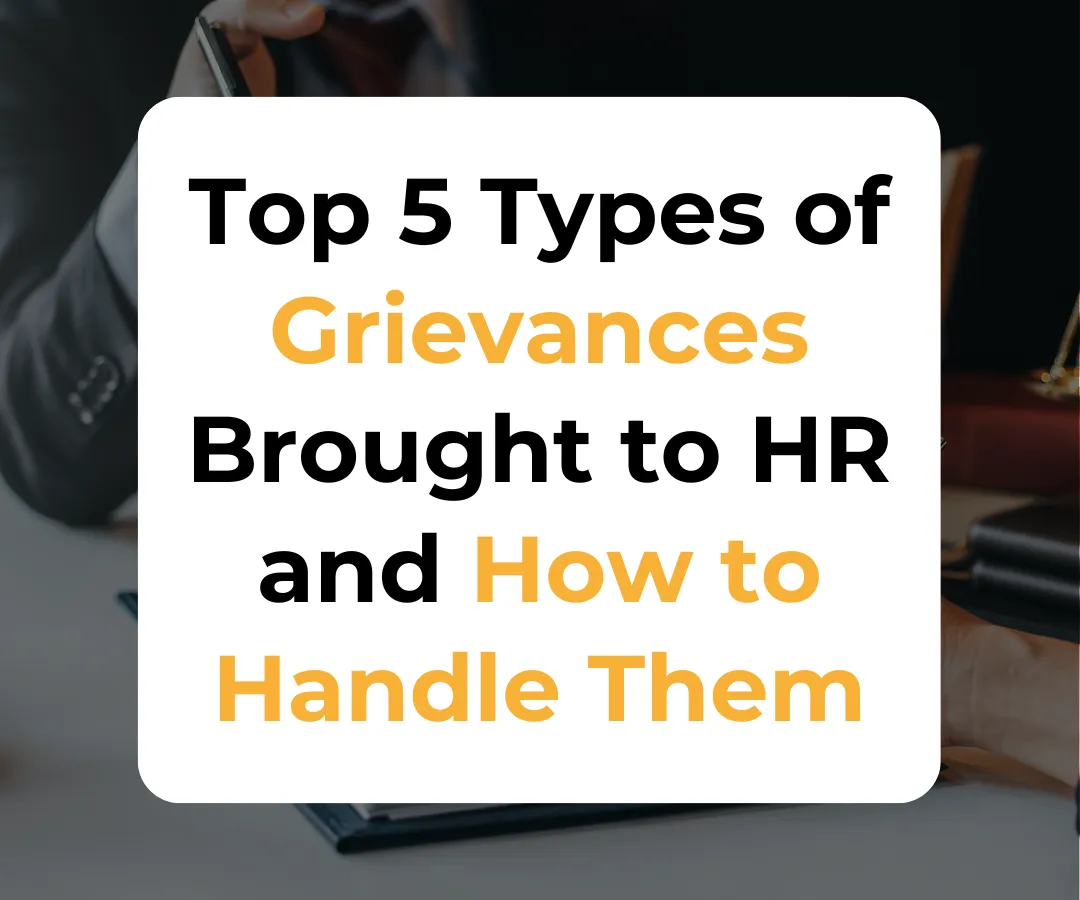Mon - Fri: 9:00 - 17:30
Legacy Strategies
Blogs & Articles
Stay up to date with the latest news
in Recruitment and Human Resources
Legacy Strategies
Blogs & Articles
Stay up to date with the latest news in Recruitment and Human Resources
At Legacy Strategies, we understand that the people behind any organisation are its most valuable asset. That's why we're excited to share our insights, expertise, and industry knowledge with you through our blogs.
In this space, you can find a wealth of information on the latest trends, best practices and innovative strategies that shape the Recruitment and HR landscape. Whether you're a HR professional, a hiring manager, a job seeker, or just someone interested in the ever-evolving world of talent acquisition and management, our blog is your go-to resource.
Stay tuned for regular updates as we explore the cutting-edge developments in HR technology, diversity and inclusion, talent acquisition strategies, and much more. We're here to empower you with knowledge that can drive your organisation's success!
At Legacy Strategies, we understand that the people behind any organisation are its most valuable asset. That's why we're excited to share our insights, expertise, and industry knowledge with you through our blogs.
In this space, you can find a wealth of information on the latest trends, best practices and innovative strategies that shape the Recruitment and HR landscape. Whether you're a HR professional, a hiring manager, a job seeker, or just someone interested in the ever-evolving world of talent acquisition and management, our blog is your go-to resource.
Stay tuned for regular updates as we explore the cutting-edge developments in HR technology, diversity and inclusion, talent acquisition strategies, and much more. We're here to empower you with knowledge that can drive your organisation's success!

The Top 5 Types of Grievances Employees Bring to HR and How to Handle Them

In every organisation, regardless of its size, there will be occasions when employees bring grievances to HR. Addressing these concerns swiftly, fairly, and professionally is essential for maintaining a positive workplace culture, reducing employee turnover, and ensuring compliance with employment law. However, not all grievances are created equal, and as an HR professional or manager, it’s important to understand the most common types of grievances that arise – and how best to handle them.
At Legacy Strategies, we work with businesses across the UK to help them build and nurture positive, productive work environments. In this post, we’ll dive into the top five types of grievances employees tend to bring to HR and provide practical advice on how to handle them effectively.
1. Bullying and Harassment
One of the most serious and common grievances employees bring is bullying or harassment in the workplace. These issues can range from overt physical intimidation to subtle, more insidious forms of emotional or verbal mistreatment. Employees who experience bullying or harassment may feel isolated, anxious, and fearful, making it essential that HR steps in quickly.
How to Handle It:
Take all complaints seriously: Never brush off allegations of bullying or harassment. Even if the behaviour seems minor, it is important to listen carefully and investigate the issue thoroughly.
Investigate thoroughly: Conduct a confidential investigation into the complaint, speaking to the employee involved, any witnesses, and the alleged perpetrator.
Offer support: Throughout the process, be sure to provide support to the affected employee, including access to counselling services if necessary.
Take action: Once the investigation is complete, take appropriate action based on the findings. This could range from disciplinary measures to implementing training sessions on workplace conduct.
2. Discrimination
Discrimination remains a significant issue in the workplace, whether it’s based on gender, race, age, disability, or another protected characteristic. If an employee feels they’ve been treated unfairly or discriminated against, it can lead to a grievance.
How to Handle It:
Maintain a zero-tolerance policy: Ensure that your company’s policies make it clear that discrimination is unacceptable and will not be tolerated under any circumstances.
Conduct a fair and unbiased investigation: Just like with bullying, it’s crucial to thoroughly investigate any claims of discrimination. Gather all relevant evidence, speak to witnesses, and treat everyone involved with fairness and respect.
Review policies regularly: To prevent discrimination from occurring in the first place, regularly review your equal opportunities policies and provide training to staff on diversity and inclusion.
3. Unfair Treatment or Disciplinary Action
Employees may bring grievances if they feel they’ve been treated unfairly, particularly in relation to disciplinary action. They might argue that they’ve been unjustly penalised or that others have been treated more leniently for similar behaviour.
How to Handle It:
Ensure a clear disciplinary policy: Make sure your company has a clearly defined and well-communicated disciplinary process. This way, employees will know exactly what to expect if they’re ever in a situation where disciplinary action is being considered.
Be transparent and consistent: When dealing with grievances about unfair treatment, it’s important to be transparent about the reasoning behind any decisions made. Ensure that your disciplinary actions are consistent across the board to avoid any accusations of favouritism.
Review the process: If an employee has a legitimate grievance about how they were treated, take the opportunity to review your internal processes and policies to ensure they are fair and transparent.
4. Workplace Stress and Overload
Increasing workloads, tight deadlines, and lack of support are all contributing factors to workplace stress. If employees feel overwhelmed or burnt out, they may bring a grievance about the stress they’re experiencing. Addressing stress early is key to preventing further burnout and maintaining employee well-being.
How to Handle It:
Regularly assess workloads: Monitor the workloads of employees to ensure they aren’t being overburdened. Regular check-ins can help identify any issues before they escalate.
Encourage open communication: Create an environment where employees feel comfortable speaking up about their stress levels. Encourage managers to regularly ask their teams how they’re feeling and offer support when needed.
Provide support and flexibility: If an employee is suffering from stress, offer solutions such as additional time off, temporary adjustments to their workload, or access to counselling and mental health services.
5. Lack of Career Development Opportunities
Employees who feel stagnant in their roles or believe there are limited opportunities for career growth within the organisation may bring a grievance. These grievances are often tied to an employee's sense of purpose, engagement, and job satisfaction.
How to Handle It:
Offer career development plans: Ensure employees are given the opportunity to grow within the company. Regular performance reviews should include discussions about career goals and opportunities for advancement.
Provide training and development opportunities: Offering training, mentoring, or even external development courses can show your commitment to employee growth.
Create a transparent promotion process: Employees should know how they can progress within the company. Implementing a fair, clear, and transparent process for promotions and career advancement helps mitigate grievances.
Conclusion
Handling employee grievances effectively is key to maintaining a healthy, productive, and harmonious workplace. By recognising the common types of grievances, and having clear policies and processes in place to address them, HR can play a vital role in preventing conflicts and fostering a positive work environment. At Legacy Strategies, we specialise in helping businesses implement the best HR practices to support their teams and create a workplace where everyone thrives.
If you’re looking to enhance your approach to handling employee grievances or need expert guidance on any HR-related issues, get in touch with us today. Our team is here to support you and help ensure your organisation’s success.
How We Can Help
If you’re looking to enhance your approach to handling employee grievances or need expert guidance on any HR-related issues, get in touch with us today. Our team is here to support you and help ensure your organisation’s success.
📞 01702 540145

The Top 5 Types of Grievances Employees Bring to HR and How to Handle Them

In every organisation, regardless of its size, there will be occasions when employees bring grievances to HR. Addressing these concerns swiftly, fairly, and professionally is essential for maintaining a positive workplace culture, reducing employee turnover, and ensuring compliance with employment law. However, not all grievances are created equal, and as an HR professional or manager, it’s important to understand the most common types of grievances that arise – and how best to handle them.
At Legacy Strategies, we work with businesses across the UK to help them build and nurture positive, productive work environments. In this post, we’ll dive into the top five types of grievances employees tend to bring to HR and provide practical advice on how to handle them effectively.
1. Bullying and Harassment
One of the most serious and common grievances employees bring is bullying or harassment in the workplace. These issues can range from overt physical intimidation to subtle, more insidious forms of emotional or verbal mistreatment. Employees who experience bullying or harassment may feel isolated, anxious, and fearful, making it essential that HR steps in quickly.
How to Handle It:
Take all complaints seriously: Never brush off allegations of bullying or harassment. Even if the behaviour seems minor, it is important to listen carefully and investigate the issue thoroughly.
Investigate thoroughly: Conduct a confidential investigation into the complaint, speaking to the employee involved, any witnesses, and the alleged perpetrator.
Offer support: Throughout the process, be sure to provide support to the affected employee, including access to counselling services if necessary.
Take action: Once the investigation is complete, take appropriate action based on the findings. This could range from disciplinary measures to implementing training sessions on workplace conduct.
2. Discrimination
Discrimination remains a significant issue in the workplace, whether it’s based on gender, race, age, disability, or another protected characteristic. If an employee feels they’ve been treated unfairly or discriminated against, it can lead to a grievance.
How to Handle It:
Maintain a zero-tolerance policy: Ensure that your company’s policies make it clear that discrimination is unacceptable and will not be tolerated under any circumstances.
Conduct a fair and unbiased investigation: Just like with bullying, it’s crucial to thoroughly investigate any claims of discrimination. Gather all relevant evidence, speak to witnesses, and treat everyone involved with fairness and respect.
Review policies regularly: To prevent discrimination from occurring in the first place, regularly review your equal opportunities policies and provide training to staff on diversity and inclusion.
3. Unfair Treatment or Disciplinary Action
Employees may bring grievances if they feel they’ve been treated unfairly, particularly in relation to disciplinary action. They might argue that they’ve been unjustly penalised or that others have been treated more leniently for similar behaviour.
How to Handle It:
Ensure a clear disciplinary policy: Make sure your company has a clearly defined and well-communicated disciplinary process. This way, employees will know exactly what to expect if they’re ever in a situation where disciplinary action is being considered.
Be transparent and consistent: When dealing with grievances about unfair treatment, it’s important to be transparent about the reasoning behind any decisions made. Ensure that your disciplinary actions are consistent across the board to avoid any accusations of favouritism.
Review the process: If an employee has a legitimate grievance about how they were treated, take the opportunity to review your internal processes and policies to ensure they are fair and transparent.
4. Workplace Stress and Overload
Increasing workloads, tight deadlines, and lack of support are all contributing factors to workplace stress. If employees feel overwhelmed or burnt out, they may bring a grievance about the stress they’re experiencing. Addressing stress early is key to preventing further burnout and maintaining employee well-being.
How to Handle It:
Regularly assess workloads: Monitor the workloads of employees to ensure they aren’t being overburdened. Regular check-ins can help identify any issues before they escalate.
Encourage open communication: Create an environment where employees feel comfortable speaking up about their stress levels. Encourage managers to regularly ask their teams how they’re feeling and offer support when needed.
Provide support and flexibility: If an employee is suffering from stress, offer solutions such as additional time off, temporary adjustments to their workload, or access to counselling and mental health services.
5. Lack of Career Development Opportunities
Employees who feel stagnant in their roles or believe there are limited opportunities for career growth within the organisation may bring a grievance. These grievances are often tied to an employee's sense of purpose, engagement, and job satisfaction.
How to Handle It:
Offer career development plans: Ensure employees are given the opportunity to grow within the company. Regular performance reviews should include discussions about career goals and opportunities for advancement.
Provide training and development opportunities: Offering training, mentoring, or even external development courses can show your commitment to employee growth.
Create a transparent promotion process: Employees should know how they can progress within the company. Implementing a fair, clear, and transparent process for promotions and career advancement helps mitigate grievances.
Conclusion
Handling employee grievances effectively is key to maintaining a healthy, productive, and harmonious workplace. By recognising the common types of grievances, and having clear policies and processes in place to address them, HR can play a vital role in preventing conflicts and fostering a positive work environment. At Legacy Strategies, we specialise in helping businesses implement the best HR practices to support their teams and create a workplace where everyone thrives.
If you’re looking to enhance your approach to handling employee grievances or need expert guidance on any HR-related issues, get in touch with us today. Our team is here to support you and help ensure your organisation’s success.
How We Can Help
If you’re looking to enhance your approach to handling employee grievances or need expert guidance on any HR-related issues, get in touch with us today. Our team is here to support you and help ensure your organisation’s success.
📞 01702 540145

The Top 5 Types of Grievances Employees Bring to HR and How to Handle Them

In every organisation, regardless of its size, there will be occasions when employees bring grievances to HR. Addressing these concerns swiftly, fairly, and professionally is essential for maintaining a positive workplace culture, reducing employee turnover, and ensuring compliance with employment law. However, not all grievances are created equal, and as an HR professional or manager, it’s important to understand the most common types of grievances that arise – and how best to handle them.
At Legacy Strategies, we work with businesses across the UK to help them build and nurture positive, productive work environments. In this post, we’ll dive into the top five types of grievances employees tend to bring to HR and provide practical advice on how to handle them effectively.
1. Bullying and Harassment
One of the most serious and common grievances employees bring is bullying or harassment in the workplace. These issues can range from overt physical intimidation to subtle, more insidious forms of emotional or verbal mistreatment. Employees who experience bullying or harassment may feel isolated, anxious, and fearful, making it essential that HR steps in quickly.
How to Handle It:
Take all complaints seriously: Never brush off allegations of bullying or harassment. Even if the behaviour seems minor, it is important to listen carefully and investigate the issue thoroughly.
Investigate thoroughly: Conduct a confidential investigation into the complaint, speaking to the employee involved, any witnesses, and the alleged perpetrator.
Offer support: Throughout the process, be sure to provide support to the affected employee, including access to counselling services if necessary.
Take action: Once the investigation is complete, take appropriate action based on the findings. This could range from disciplinary measures to implementing training sessions on workplace conduct.
2. Discrimination
Discrimination remains a significant issue in the workplace, whether it’s based on gender, race, age, disability, or another protected characteristic. If an employee feels they’ve been treated unfairly or discriminated against, it can lead to a grievance.
How to Handle It:
Maintain a zero-tolerance policy: Ensure that your company’s policies make it clear that discrimination is unacceptable and will not be tolerated under any circumstances.
Conduct a fair and unbiased investigation: Just like with bullying, it’s crucial to thoroughly investigate any claims of discrimination. Gather all relevant evidence, speak to witnesses, and treat everyone involved with fairness and respect.
Review policies regularly: To prevent discrimination from occurring in the first place, regularly review your equal opportunities policies and provide training to staff on diversity and inclusion.
3. Unfair Treatment or Disciplinary Action
Employees may bring grievances if they feel they’ve been treated unfairly, particularly in relation to disciplinary action. They might argue that they’ve been unjustly penalised or that others have been treated more leniently for similar behaviour.
How to Handle It:
Ensure a clear disciplinary policy: Make sure your company has a clearly defined and well-communicated disciplinary process. This way, employees will know exactly what to expect if they’re ever in a situation where disciplinary action is being considered.
Be transparent and consistent: When dealing with grievances about unfair treatment, it’s important to be transparent about the reasoning behind any decisions made. Ensure that your disciplinary actions are consistent across the board to avoid any accusations of favouritism.
Review the process: If an employee has a legitimate grievance about how they were treated, take the opportunity to review your internal processes and policies to ensure they are fair and transparent.
4. Workplace Stress and Overload
Increasing workloads, tight deadlines, and lack of support are all contributing factors to workplace stress. If employees feel overwhelmed or burnt out, they may bring a grievance about the stress they’re experiencing. Addressing stress early is key to preventing further burnout and maintaining employee well-being.
How to Handle It:
Regularly assess workloads: Monitor the workloads of employees to ensure they aren’t being overburdened. Regular check-ins can help identify any issues before they escalate.
Encourage open communication: Create an environment where employees feel comfortable speaking up about their stress levels. Encourage managers to regularly ask their teams how they’re feeling and offer support when needed.
Provide support and flexibility: If an employee is suffering from stress, offer solutions such as additional time off, temporary adjustments to their workload, or access to counselling and mental health services.
5. Lack of Career Development Opportunities
Employees who feel stagnant in their roles or believe there are limited opportunities for career growth within the organisation may bring a grievance. These grievances are often tied to an employee's sense of purpose, engagement, and job satisfaction.
How to Handle It:
Offer career development plans: Ensure employees are given the opportunity to grow within the company. Regular performance reviews should include discussions about career goals and opportunities for advancement.
Provide training and development opportunities: Offering training, mentoring, or even external development courses can show your commitment to employee growth.
Create a transparent promotion process: Employees should know how they can progress within the company. Implementing a fair, clear, and transparent process for promotions and career advancement helps mitigate grievances.
Conclusion
Handling employee grievances effectively is key to maintaining a healthy, productive, and harmonious workplace. By recognising the common types of grievances, and having clear policies and processes in place to address them, HR can play a vital role in preventing conflicts and fostering a positive work environment. At Legacy Strategies, we specialise in helping businesses implement the best HR practices to support their teams and create a workplace where everyone thrives.
If you’re looking to enhance your approach to handling employee grievances or need expert guidance on any HR-related issues, get in touch with us today. Our team is here to support you and help ensure your organisation’s success.
How We Can Help
If you’re looking to enhance your approach to handling employee grievances or need expert guidance on any HR-related issues, get in touch with us today. Our team is here to support you and help ensure your organisation’s success.
📞 01702 540145
01702 540145
Legacy Strategies Ltd,
Suite 3, 19 Aviation Way,
Southend-on-Sea,
Essex,
SS2 6UN
Mon - Fri: 9:00 - 17:30


